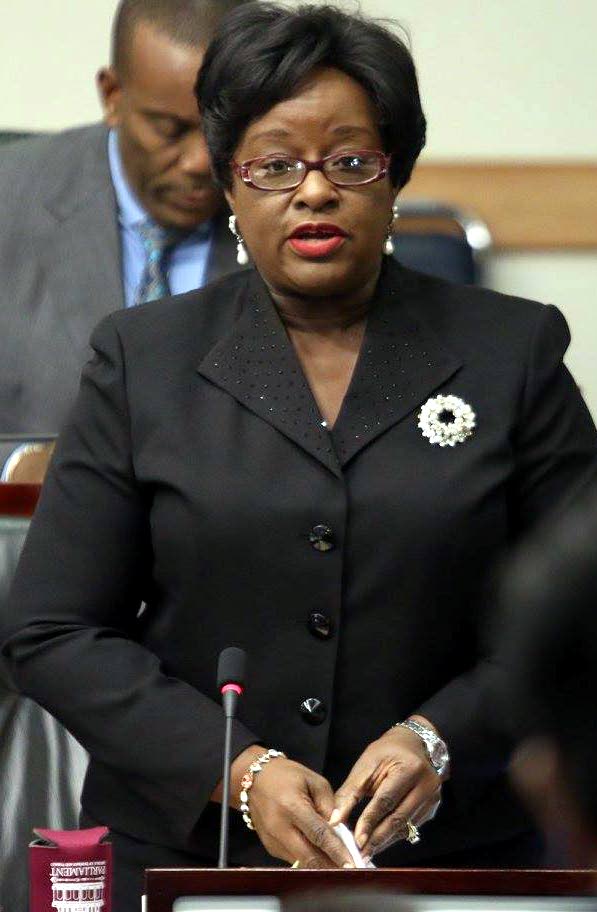Government focused on eliminating hazardous waste

Effectively managing waste in an environmentally sound manner is one of the greatest global challenges today.
So said Planning and Development Minister Camille Robinson-Regis, who also has responsibility for the environment.
She said the current state of Trinidad and Tobago’s waste management and disposal system was receiving immediate and in-depth attention to ensure that the detrimental impact on human health and the environment from waste was mitigated.
The Basel Convention Regional Centre for Training and Technology Transfer for the Caribbean Region (BCRC-Caribbean) was one organisation that has been working to address this issue throughout the Caribbean with the execution of sustainable integrated waste and chemicals management projects.
Robinson-Regis said it was estimated that by 2020, the twin-island nation would generate 1.4 million tonnes of municipal solid waste per year.
She said this was an astounding figure because as a small-island developing state, there was limited space and limited resources to properly dispose of the projected volumes.
The minister added that the Solid Waste Management Authority (SWMCOL) said a significant amount of the 1,500 tonnes of waste entering the country’s three landfills daily was recyclable.
The Environmental Management Authority (EMA), through its ICare project, was facilitating the household separation of waste and collection of recyclables so waste entering the landfills would decrease by a considerable amount, and recycled resources could be used as raw materials in new products, leading the country closer to a circular economy.
ICare recycling bins were currently in 73 locations nationwide with more on the way.
Robinson-Regis said single-use plastics have proven to be the most pressing waste issue worldwide. As such, this year’s World Environment Day theme, “Beat Plastic Pollution” (#beatplasticpollution), encouraged countries to take action by implementing measures to ban or reduce single-use plastics.
Other Caribbean countries including Antigua and Barbuda, Dominica, Guyana, Jamaica and Saint Vincent and the Grenadines have already joined these initiatives, while this country’s Government was currently working with stakeholders regarding a similar path.
During a two-day forum hosted last month by the BCRC-Caribbean, executive of the Basel, Rotterdam and Stockholm Conventions, Dr Rolph Payet, stressed the need for sustainable management of chemicals and waste in small island developing states (SIDS).
He also highlighted the BCRC-Caribbean as a key in the coordinated implementation of efforts to fulfil this need in the Caribbean Region through the mobilisation of over US$20 million for activities.
Robinson-Regis spoke about the challenges and circumstances that the waste management sector of TT’s faced, and stressed the importance of overcoming these issues to protect the people and the environment.
She added that this Government intended to replace the landfills with modern, scientific methods of waste capture, recovery and disposal, and also to encourage efforts to divert the amount of recyclable material that was being disposed.
The minister said TT was moving towards a superior integrated approach to managing all waste streams generated, and it was vital for the Government, all organisations in the public and private sectors and citizens to understand that working in collaboration would be mutually beneficial to all.


Comments
"Government focused on eliminating hazardous waste"